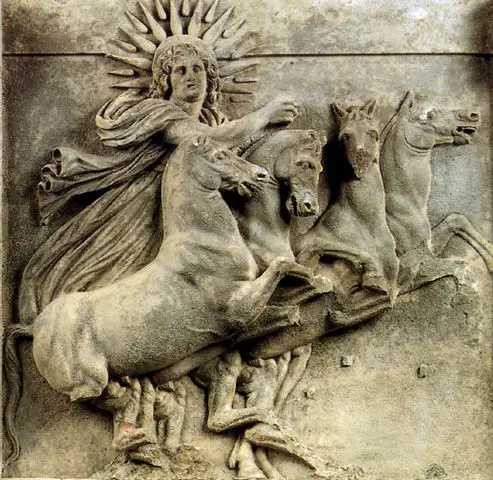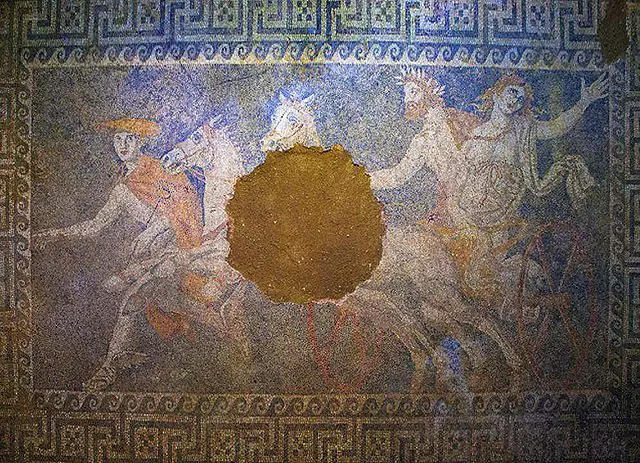To the average Roman few things were as important as their family. This is also true for the average Roman soldier who would spend nearly their entire life away from their family. Fortunately for us, we have documents that survive from the Roman era that outline the family life of the average Roman soldier. This article answers the question of whether or not Roman soldiers had families.
During the early Roman Empire soldiers would not be allowed to marry or start families. This was because it would open up the military unit to individual soldier’s issues causing a fall in morale. By the middle Empire, this would be changed as commanders saw a need to tie foreign soldiers to Roman life. However, for much of the Empire soldiers were not formally allowed to start families of their own.
Here at The History Ace I strive to publish the best history articles on the internet. If at the end you enjoyed this article then consider subscribing to the free newsletter and sharing around the web.
Without further ado, here is an article covering the family life of Roman soldiers.
Family Life Of Roman Soldiers During The Republic
It is important to remember that there was no permanently standing Roman military up until the late Roman Republic. Instead of large Roman legions with thousands of troops the Roman military under the early and middle Republic resembled more of a militia than a formal army.
This was because each soldier during this time period had to provide their own equipment and food. From this the Roman military was composed of volunteer soldiers who held their own land that was automatically worked by a labor force.
This would allow the Roman soldiers during the time of the Republic to go on military campaigns for extended periods of time without having to worry about their estates falling into disarray.
As such during the early and middle Republic only the most wealthy could afford to serve in Rome’s military. These were established families which would send their children to gain glory and valuable experience in the field. Once they returned home it would be easier for them to run for political office and bring further glory and prestige to their family name.
As such Roman soldiers during the time of the early and middle Republic had families of their own back home. This was because the Roman soldier of this time period was simply a free man who volunteered to serve to protect their home and the Roman state. Military campaigns during this time were often shortened to allow the soldier to return back to their family.
This type of volunteer Roman military service worked well during the early and middle Republic. This was due to the fact that Roman territory was not that large and semi-autonomous. There simply was not a need for a permanently standing military to protect it.
This would begin to change however after the Punic Wars (264-146 BC). Now Rome held considerable territory and a need to defend it. From this came a need to re-establish how the Roman military operated. No longer could Roman soldiers be volunteers and only serve on brief campaigns around their homes.
As such during the late Roman Republic Gaius Marius would institute new changes to how the Roman military operated (107 BC). This included the creation of a permanently standing military made up of paid soldiers.
However, during the early and middle Republic Roman soldiers had families back home that they would frequently visit. This would change drastically in 107 B.C when Gaius Marius would create formal permanently standing Roman legions.
Family Life Of Roman Soldiers During The Late Roman Republic And Early Empire
When people think of the Roman military they often think of the massive legions of the early Roman Empire and the late Roman Republic. This time period stretched from around 120 BC up through the end of the Nerva-Antonine dynasty of 192 AD.
This was the height of Roman military dominance around the Mediterranean. During this time Roman legionaries were expected to demonstrate extreme levels of discipline which included not seeking a wife or starting a family.
Starting under the reign of Emperor Augustus Roman soldiers were not allowed to marry or start families without special approval from their commanding officers. This would have meant that as a Roman soldier you would be expected to only interact with the members of your unit and become completely separate from the normal civilian population.
Higher-ranking officers in the Roman military could start families when given special approval. This however was rare and outside the norm. For the average Roman soldier serving during the late Roman Republic and early Empire there was almost no chance that they were allowed to marry.
However, Roman soldiers would find a way to get around this rule by entering into ‘civil-unions’ with their loved ones. This was a union that would be recognized by the army but not by the Roman state. This gave the Roman legionary soldier a ‘family’ but it would give the soldier’s family none of the protections and guarantees that a formally recognized Roman family would have.
The main problem with these unions was that the children born into the soldier’s family would have no claim over their father’s estate. They essentially were fatherless children who would often end up joining the military themselves. If the father died in battle or of old age then both the wife and children would be left with nothing and often would not be informed of the soldiers passing.
Naturally this created problems within the Roman military. Roman soldiers were known to care for their families while on deployment and often send money back home. We know of this because legionary tombstones erected by the soldier’s unit would often mention their unofficial family outside of the legion.
While the official stance of the Roman legions during this time was that a soldier could not marry it appears that at the unit level the men understood and cared for the widow and children to some degree.
By the middle Empire however the official stance on Roman soldiers marrying would change. It appears that commanding officers in the field recognized the impact that marriage would have on the morale of the soldiers and reversed the decision.
However, from the late Roman Republic up through the early Roman Empire the average Roman soldier was not allowed to officially marry. This would have prevented them from starting families although we have examples of soldiers finding ways around this rule anyways.
Family Life Of Roman Soldiers During The Middle and Late Empire
The early Roman Empire lasted from 27 BC up through the end of the Nerva-Antonine dynasty in 192 BC. During this time the soldiers of the Roman army were not allowed to marry or start official families. After this we can see the start of the middle Roman Empire period.
It is during this middle Roman Empire period that the rule of Roman soldiers marrying changed. During the reign of Septimius Severus in 197 B.C Roman soldiers were finally allowed to marry and have families outside of military service.
Historians debate as to why the law on Roman legionaries not being allowed to marry was revoked after standing for nearly 2 centuries. A popular thesis on why the law was revoked was that during the middle Empire the military of Rome transitioned from an offensive army to a defensive one where units would be stationed along the frontiers for extended periods of time.
Without the constant need for marching Rome would see her military begin to settle down into a defensive formation to protect the borders of the provinces. It was here that Roman soldiers would begin to start their official Roman families.
Having an official marriage by the Roman state allowed the children of the marriage to inherit the name and estate of the soldier. Further, allowing marriages among the common soldiers increased morale and a soldier’s desire to protect his new home from invaders.
Septimius Severus in 208 AD would engage in a series of bloody wars in northern England/Scotland. Historians debate whether or not allowing soldiers to marry the local population of these lands would allow for stronger fortifications. This was because the native Caledonians engaged in a series of guerilla wars that destroyed Roman fortifications.
However, for the remainder of the Empire Roman soldiers were allowed to marry and have families. This was a far cry from the early Empire where Roman soldiers were not allowed to have families.
Conclusion
There you have it; an entire article dedicated to the question of the family life of Roman Soldiers.
Once a Roman Soldier joined the Legion that was their family. They would occasionally get letters from their family back home but other than that there was no personal family life for them. This would change when Emperor Septimius Severus allowed soldiers to marry for the first time.
Here at The History Ace I strive to publish the best history articles on the internet. If you enjoyed this article then consider subscribing to the free newsletter and sharing around the web.
Further, you can check out some of the other articles below.
-
How The American Revolution Changed The World

Here is how the American Revolution changed the world. Many people are not aware of just how important this event actually was.
-
Why The Roman People Loved Chariot Racing

Why did the Roman people love chariot racing? Well it all comes down to these 3 reasons.
-
The Design and Color of Roman Chariots

What was the design and color of Roman Chariots? Were they faster or slower then normal chariots? Well here is everything!
Sincerely,
Nick